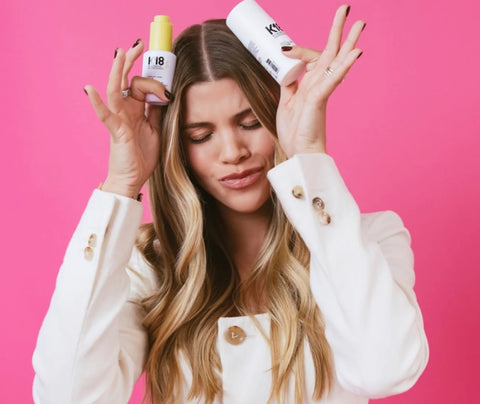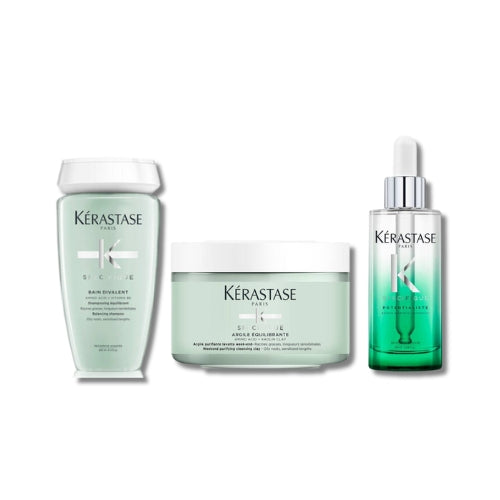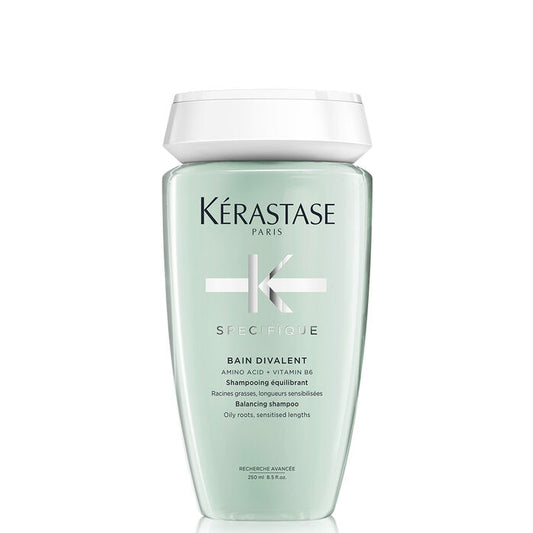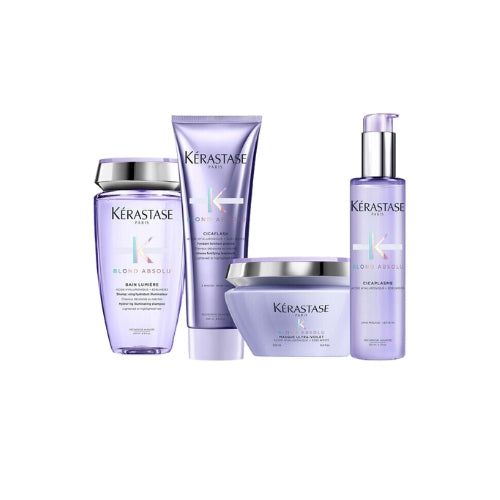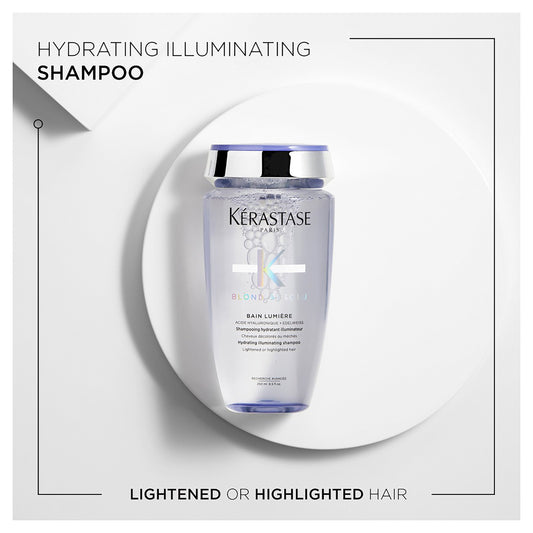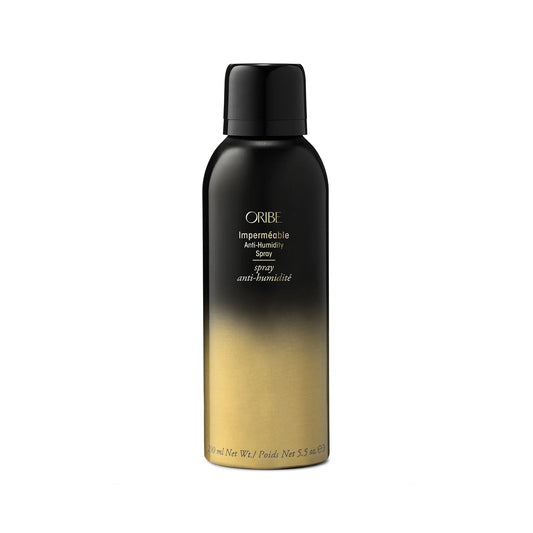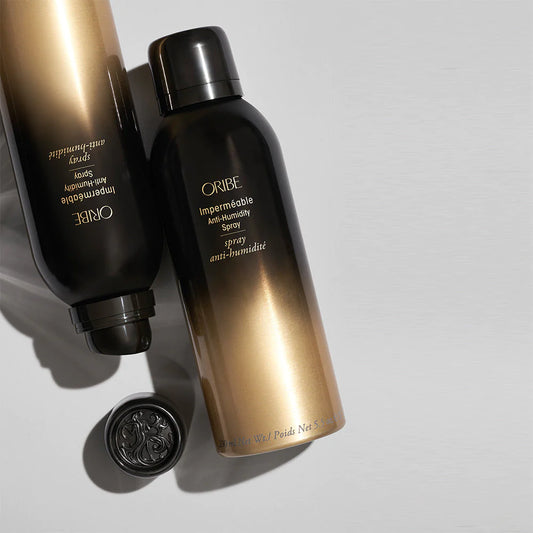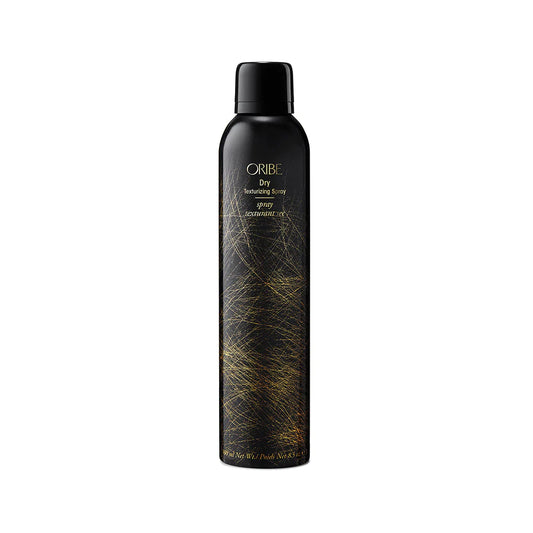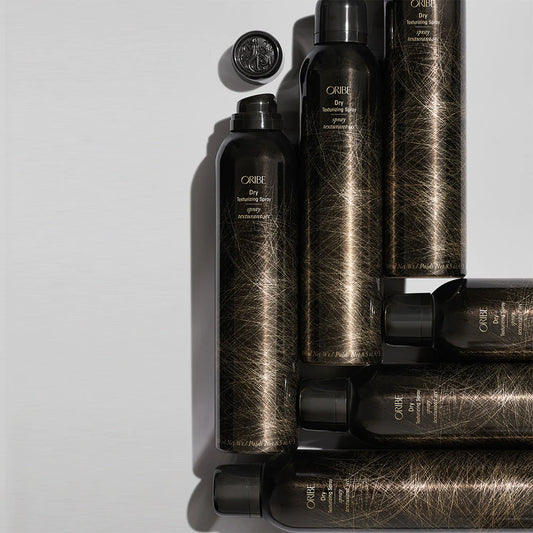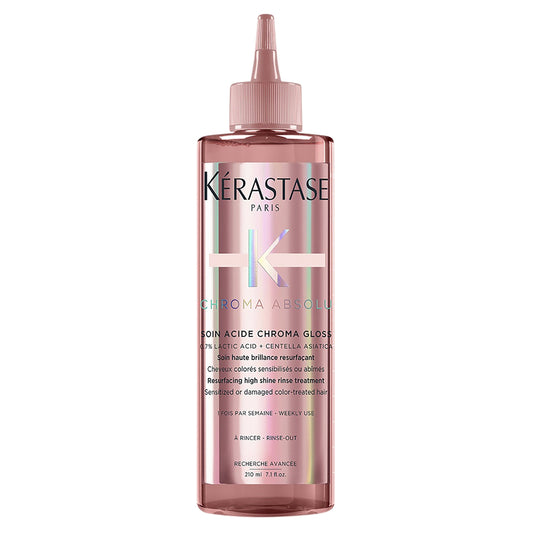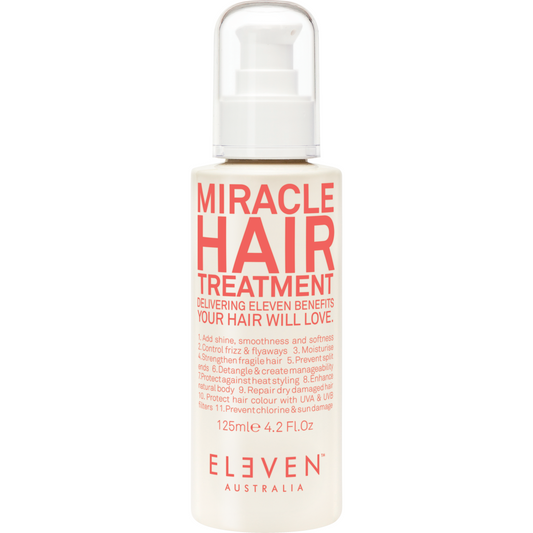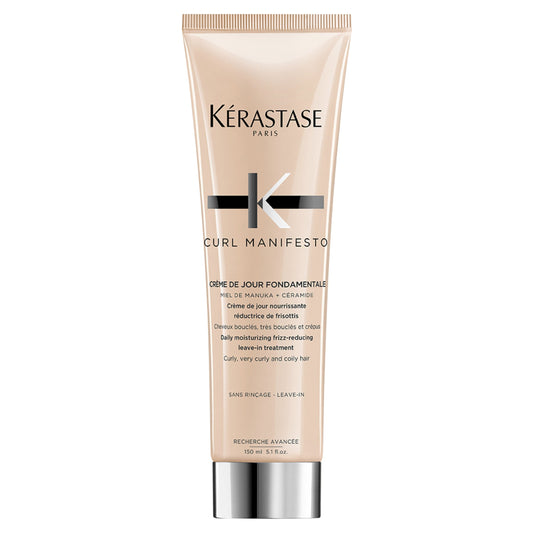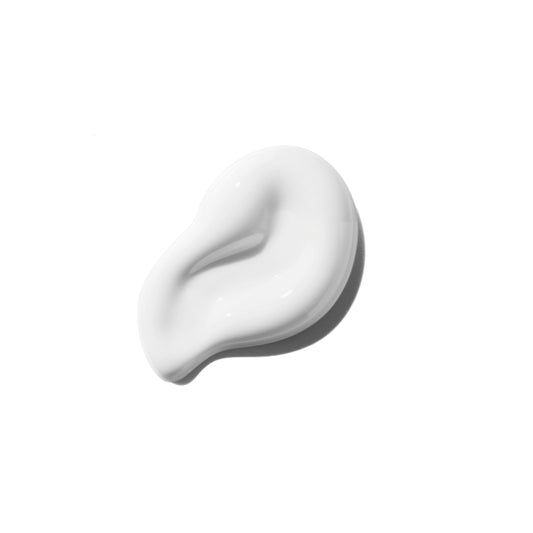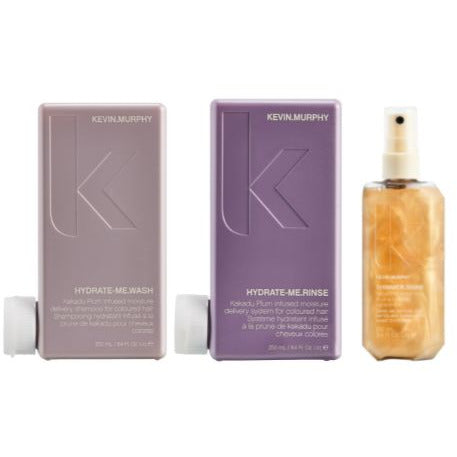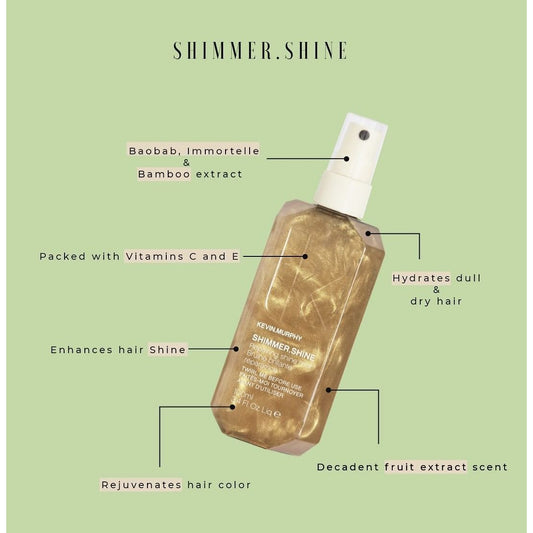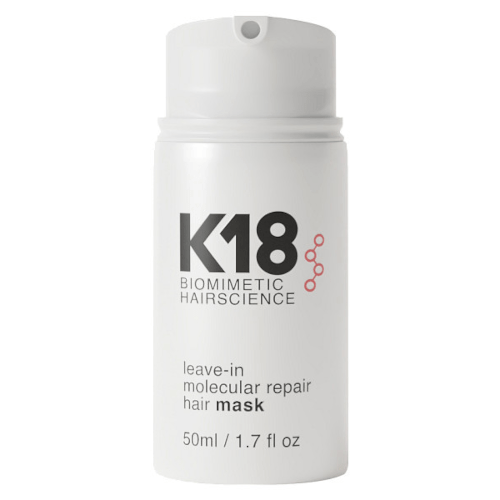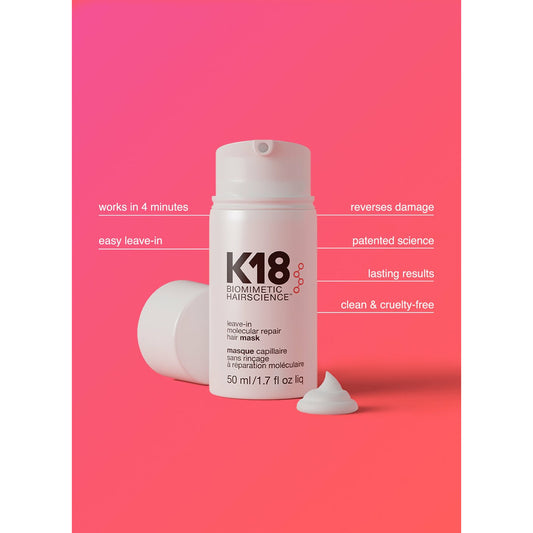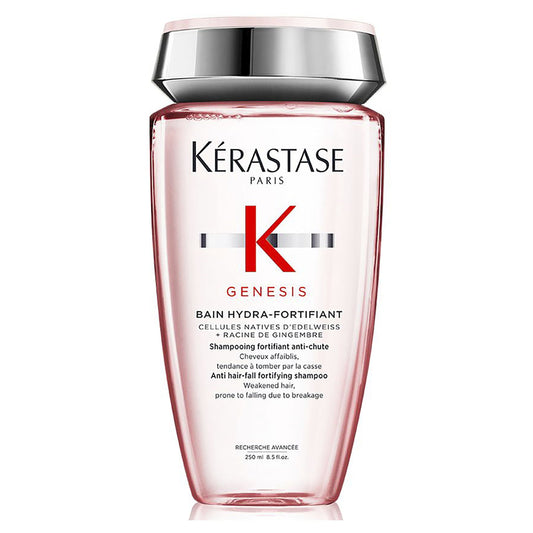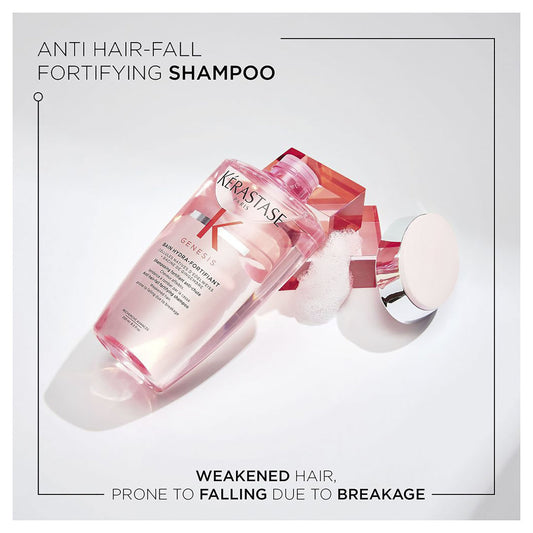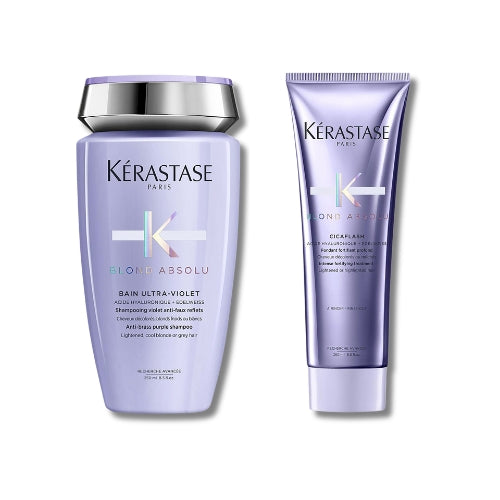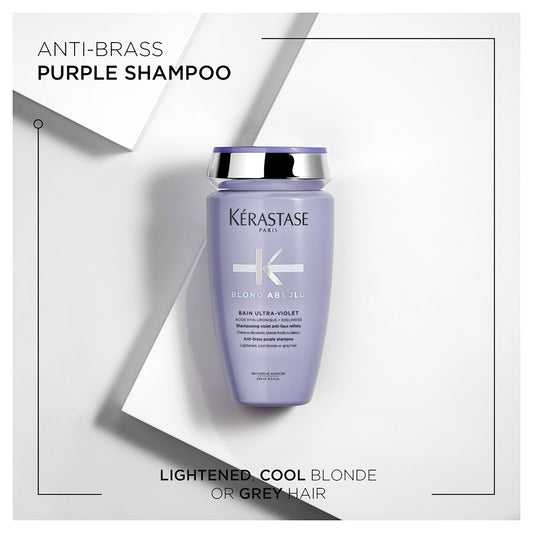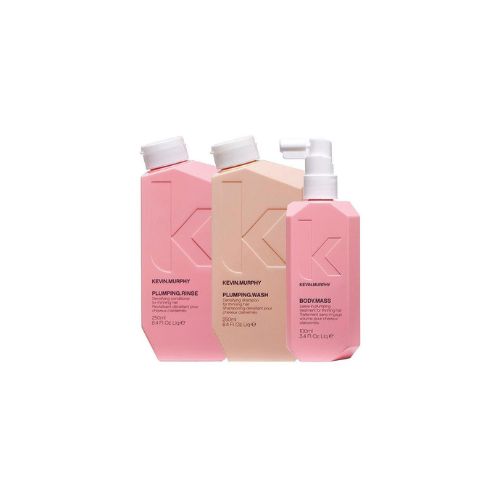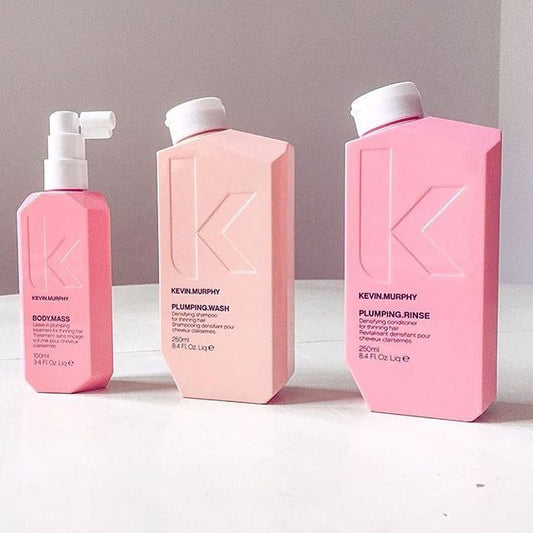Sitting in the salon chair, you’ve probably been warned to steer clear of products with silicone. Those are the puzzling haircare products that one day make your hair feel silky, frizz-free, and shiny and the next weighed down and greasy.
Have you been grilled by your colourist about your shampoo and conditioner and wondered why their eyes become wide when you mention certain products with this ingredient?
Most silicones are hydrophobic which means they repel water. In your hair, silicone will displace water and push it away. When this happens the very precious moisture content of just 3% is reduced and the protein bonds that make up 97% of hair become less stable and more likely to break. If you are planning to lighten your hair this is a big “proceed with caution” sign for your colourist.
What Are Silicones and How Do They Work?
Silicones are a classification of polymers also known as silicon dioxide or silica. Polymers are substances that consist of macromolecules that are formed by many sub-units.
In haircare products, silicones essentially form a protective coating around the hair, providing an array of benefits. It’s not all bad. Silicones can aid in enhancing the slip on the hair which makes it easier to detangle, they can reduce frizz, function as effective heat protectants, and can also help add shine to the hair.
Not all silicones are made equal. There are several types of silicones and each exhibits different properties. In haircare, the main types of silicones are:
Water-soluble silicones
Such as dimethicone copolyol, easily removed from hair with water
Non-soluble silicones
Such as dimethicone, cannot be removed or penetrated by water
Volatile silicones / evaporative silicones
Such as cyclomethicone, evaporate from the hair over time - anywhere from 10 minutes to several hours.
But What about Buildup?
This is what your colourist is crazy over. A common point of concern is that silicones are the primary cause of buildup on the hair. It is important to note that silicones are a category of ingredient and there are various types of silicones that exhibit different properties.
In some cases, ingredients in a formula, such as non-soluble silicones can be more substantive - meaning the ingredient and the hair want to stick together and not separate. This can make it difficult to judge how hard it will be to remove that product later if it refuses to let go of the hair. In terms of hair colour, in particular lightning work, your colourist cannot be certain how many shades your hair will be able to lift because of this.
Ingredients in a formula can also demonstrate synergy, in which the effect of two or more ingredients produces a greater effect than the ingredients used alone. As a result, this may lead to build-up, weigh the hair down, and eventually lead to breakage. Additionally, the build-up can interfere with a product’s ability, such as the K18Peptide™, to treat and repair the hair’s cortex.
Should I Avoid Silicones?
Silicones are perfectly fine to use under the right conditions. Long-term use and build-up caused by non-soluble silicones can weigh down the hair. The instant shine and volumising body we all love from using products with silicones is usually a temporary fix. Because silicones form a coating around the hair follicle they can prevent other beneficial ingredients from reaching your hair. If not washed out properly, products designed to nourish your hair will be a waste of time and money, unable to reach the hair’s cortex. Silicones are designed to keep environmental aggressors out of the hair shaft but it can also mean they lock in some not-so-great substances, like oil, dirt, and dead skin cells.
Ultimately, it boils down to preference and your specific hair needs. If you choose to use products that contain silicones, it is essential to wash your hair (and particularly use a clarifying shampoo before applying K18) to allow your hair treatments to perform efficiently.
Looking for good hair treatment in Australia? K18 is clinically proven to reverse damage in just four minutes, with K18Peptide™ recognised as a molecular breakthrough haircare. Contact us today!


